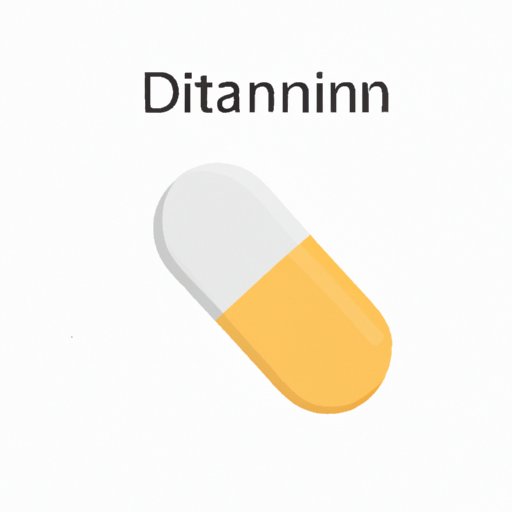
I. Introduction
Vitamin D is an essential nutrient that numerous individuals take for granted. It is assumed that the body produces enough by itself, but that isn’t always the case. This article explains the importance of Vitamin D, the recommended daily intake, and how to recognize if you need to take this nutrient.
II. The Benefits of Vitamin D
Vitamin D supports the body’s immune system, calcium absorption, and phosphate metabolism. When these levels are properly regulated, it enhances the health of bones and teeth. Vitamin D also plays a crucial role in releasing neurotransmitters, such as dopamine and serotonin, which affect brain function and mood. When taken correctly, it boosts the functioning of the immune system and lowers vulnerability to various ailments.
The benefits of Vitamin D are numerous and its necessity is often underrated, particularly when it comes to the immune system functioning, bone strength, and mood. Research suggests that the “sunshine vitamin” has a big effect on the release of neurotransmitters that contribute to general pleasure.
Insufficient Vitamin D can increase the risk of osteoporosis and fracture vulnerability, particularly in the elderly. Since the nutrient aids in calcium absorption, it’s necessary for those who don’t consume a lot of calcium-rich foods.
III. The Different Sources of Vitamin D
There are 3 main sources of Vitamin D: sunlight, food, and supplements.
Sunlight: Our skin produces Vitamin D when it’s exposed to the sun’s UVB radiation. It’s approximately all that the body requires.
Food: Not many foods supply Vitamin D, but those that do include fatty fish like salmon and mackerel, egg yolks, mushrooms, and fortified items like cereals and milk.
Supplements: Supplements are an excellent choice for those who have a deficiency. They’re usually in the shape of capsules or gummies.
IV. Signs of Vitamin D Deficiency
Symptoms of a Vitamin D deficiency include fatigue, loss of appetite, decreased bone density, joint pain, and a weakened immune system that compromises resistance to infections and viruses. Rickets are a condition that’s caused by a deficiency in Vitamin D and leads to bone deformities and defects.
Consulting a doctor is essential if you have symptoms of a Vitamin D deficiency since the symptoms might be shared by other illnesses, and only a doctor can tell for sure whether you have a deficiency.
V. How Much Vitamin D Do You Need?
The suggested daily intake varies depending on factors such as age, weight, and whether you have a deficiency in Vitamin D or not. The suggested daily intake for most adults is 600 IU daily.
There are certain factors that can influence how much Vitamin D you should take, such as skin color and how much sun a person is exposed to. The daily intake also varies according to the time of the year when it’s hard to get Vitamin D.

VI. Best Time to Take Vitamin D Supplement
Regardless of age, it’s always a good idea to take a Vitamin D supplement regularly. For those on a vitamin D supplement routine, the ideal time to take it is with a meal that contains fat because Vitamin D is a fat-soluble nutrient. For those who forget to take it on a regular schedule, taking a Vitamin D supplement at any time is still helpful
VII. Combining Vitamin D with Other Supplements
Vitamin D can work together with other nutrients like calcium, zinc, and magnesium to improve bone density. In addition, research also indicates that adding Vitamin K, which is present in leafy greens, to Vitamin D supplements enhanced their functionality.
VIII. Answering Common Questions About Vitamin D
Frequently asked queries about Vitamin D include its toxicity rate which is exceedingly improbable and how well-formulated supplements are absorbed by the body. Supplements engineered to match the body’s natural formula are very efficient, while the body’s ability to absorb nutrients is unique for each person and depends on a variety of factors.
IX. Conclusion
Vitamin D is often ignored when it comes to the nutrition our body needs. It is a vital supplement that supports an array of systems like mood and bone health. The various choices for obtaining Vitamin D, symptoms of deficiency, and optimal doses are all critical elements to understand. Taking Vitamin D regularly, even through a supplement or fortified foods, may lead to better overall health and well-being.





